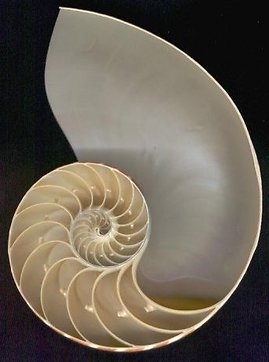Case scenarios (entirely fictitious)
Justin and Moira
Let me introduce you to imaginary clients, Justin and Moira. Jay loved his nights out with his mates. They'd all been through Uni together; and they only met once a month for a few beers after all... Moira loved it that Jay had such friends, one of the things that drew her to him was that he really valued friendship. He was there for his friends; and he was there for her too. She felt safe in the knowledge that she could rely on him. However Jay was also a hopeless timekeeper, especially when he was out on the town. He'd tell Moira that he'd be home by midnight and he'd rock in, very merry, at 2 or 3. By this time Moira was near to collapse with fear, and she would lock Jay out. They'd shout angry remonstrations through the door until Moira relented and let him in. Huge rows ensued until, one time, Moira lost it and tipped up the kitchen table and started throwing the chairs at Jay. One hit his head and the leg went into his eye, and he fell to the floor. They were both appalled at what had happened and came to see me.
We went looking for the "great issues" that drove this conflict; and it was their childhoods that we visited . It turned out that Moira had grown up as an only child in a single-parent family; and that sometimes her mother had known no other way to get time to herself and go out, than to lock Moira in her bedroom. It had started as very short periods to nip down to the shops when Moira was tiny; but it grew and grew over time until Moira aged 7 or 8 was being locked in for whole evenings while her mother went out on dates... Moira never knew when, or if, she would come home; and sometimes her mum was pretty drunk on return and forgot to unlock the door and just went to bed.
I took Moira and Jay through a process constructed to develop empathy in Jay for Moira's experience of him being late home. He thought she should understand that it was his one night out a month and just go to bed... He wasn't "asking much". But as the story of the locked-in evenings unfolded and he saw the raw emotions in Moira that arose as she described this time in her life, it dawned on him what it all meant to her; and how her terror made sense... He visibly changed from dismissing her as "over responding" to letting a tear of his own slide down his cheek. Later we were able to exchange the privilege of a visit to his childhood, and Moira came to understand how his laid back attitude to timekeeping developed - but that is another story!
Click here to return to the section on Arguments.
Janet and Douglas
Imagine for yourself Janet (32) and Douglas (34) who married 12 years ago. A high-school romance, their youthful marriage fulfilled Jan's girlhood dream of being forever in love.
But recently Doug had announced that he was involved with another woman and left home. Jan was shocked but she wasn't that surprised: for a few years "the magic had been gone". Now she felt bereft, alone, regretful, worthless and frightened of the future.
How could this have happened? How would she now live without an "always marriage" as she called it? What would happen to the children (10 and 8)? "Where did I go wrong?" she asked.
Although Jan was angry with Doug, she was more sad and resigned than angry. Her friends were strongly blaming of Doug and urged her to "get him out of your system" and find "someone better". Jan had tried this and was confused by her own reluctance.
To make matters worse Doug kept coming home. He kept many of his clothes at home and didn't change his mailing address even though he was living in a rented flat. He continued both his new relationship and the renovations to the their house. It seemed to Jan that he was holding on and this confused her even more. Some days, when he was around doing things to the house, it felt as if nothing had happened...
How should she behave? "Deep down I still love him and I want him to come back". One minute she thought she just needed to wait; and the next moment the thought of him "with her" was unbearable and she never wanted to see him again.
Worse still were the questions from the children... Why had Daddy gone? When would he come back? She realised that they would probably always want him around... How was she going to be able to bear this proximity to the man she had "lost"?
How to work with Jan? I wanted her to know that this was not an uncommon scenario -- but equally I wanted to acknowledge her very personal pain of loss and regret. I wanted also to honour the love she felt for Doug; and yet understand the meaning of this feeling being sustained in her in the face of events. I wanted to help her find her own path through her circumstances; and yet I wanted to find with her the explanations that theory and experience had taught me would come from the particular way that she had formed her "life view" as a child and a young woman.
As Jan unfolded her story I learned that she had grown up in a traditional family in the company of two brothers, six and eight years older than her. She spoke deferentially and distantly about them "I hardly knew them"; and likewise of her father who was a man dedicated to his work and who spent very little time at home. She had loved him enormously however and had been "his little princess". She remembered, aged about 9, longing for him to come home: "I would wait at the end of the road and watch for his car; I loved those moments when he'd just got home. It was the only time I felt really special". He'd go out again in the evening to "make contacts" but now she realises he just went to the pub. Her mother "would sigh and wonder out loud what she was doing wrong". Jan often couldn't sleep until she'd heard him return, but somehow these returns were different: her "king" was noisy and truculent and her mother was submissive and silent. Sometimes though "I could hear her crying downstairs after he'd gone to bed. I would cry myself to sleep as well because I thought I must be doing it wrong too". Jan had left home at 16 because as time had gone on the tension between her parents had been unbearable and "there was nothing I could do about it". She had met Doug a few weeks later...
Then, when she was in the last few days of her first pregnancy her father had been killed in a drunk driving accident: two others had died too. It was her father who had been drunk. Each event had overshadowed the other: she had been torn between her pain at his dying, her shame in his culpability and her joy in the birth of her first child.
Slowly the meaning of these experiences in the shaping of Jan's life view emerged. She recognised how deeply she had always felt a confusion of love for, disappointment in and guilt towards her father; and how strongly she had formed and held the assumption that it was unchangeable. She realised too that in response to the events of her life she had travelled an emotional circle in her mind, re-visiting each conflicting feeling (joy, grief, shame) with no apparent means of resolving any of them, collecting the pattern of powerlessness that her mother had experienced. We came to describe it as racing from post to post on a rounders pitch -- but the ball was lost and the game never ended. She dreamed vividly throughout the time that I saw her and her dreams had a common theme of things she had to do, but didn't know how to, and which never ended...
As the work progressed Jan was able to see how closely she had unconsciously replicated in her own marriage the assumptions of her parents; and how much life had been lost to 'circling'. For a time she was filled with despair at what she called her "foolhardiness". But she gradually convinced the child of her memories that it hadn't been her fault; and became willing to verbalise that her "king", tragically, had lived in a cardboard castle. Talking about his life in the same way she had begun to talk about her own, she could see that he, and indeed her mother, had had their own struggles...
What followed was a slowly growing sense of possibility: she could change this. What I call her lived experience had taught her that "nothing could be done"... She began, instead, to believe that she could influence her future.
She embarked on what was a huge experiment for her. She began to relate differently to Doug, managing to convey to him both her continuing love for him and her horror at his choosing someone else. She began to question his preferences and to assert her own. For a while she got excited about "changing my life" and dreamed of "my own business and lots of money" but this soon emerged as a polarised defense against her losses; and instead she began to consolidate smaller changes in the detail of her own behaviour both towards Doug and her children.
Doug's response is another story altogether, and one I don't know: Jan's work with me was on herself and she left therapy feeling differently enough about herself to be able to imagine a life without him, or a very different relationship with him. I have not wondered much about what actually happened: the work was in accompanying Jan through her birth into her own life and out of the over-riding influence of other lives and other times. Once there she would know what to do.
Click here to return to the section on Affairs.

